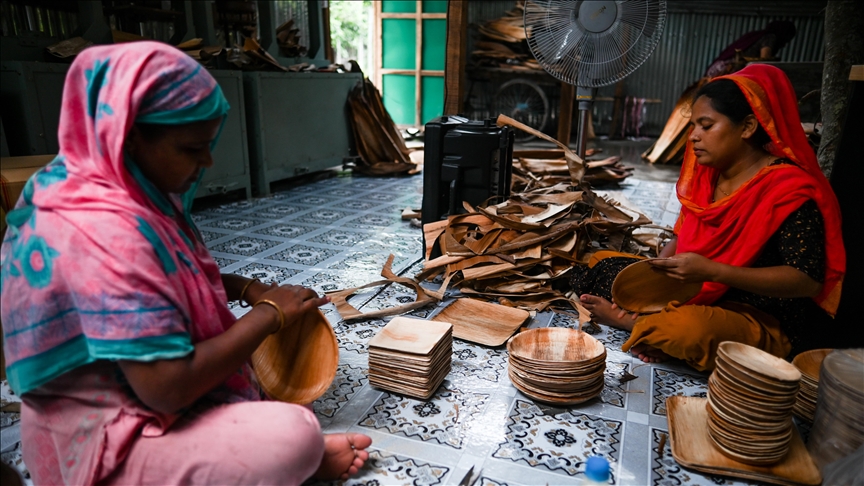UN recommends that Bangladesh take gender-responsive climate action
As Bangladesh’s coastal south-central region explores challenges women face, UN highlights actions to address gender inequality, empowerment

DHAKA, Bangladesh
The UN has advocated taking gender-responsive and human rights-based climate action to address the inequality women are facing due to the effects of climate change in south-central Bangladesh.
A UN team in Bangladesh shared the suggestion Thursday following a recent three-day visit to the coastal Khulna and Barisal divisions, or administrative regions, where they met with women and girls affected by climate change. The delegation also visited UN projects in the climate vulnerable areas.
During the visit, the team explored the challenges women face in the areas and highlighted the need to advance efforts in addressing gender inequality and women's empowerment, the UN said in a statement.
Five UN agencies -- UN Women, the UN Population Fund (UNFPA), the Food and Agriculture Organization (FAO), the UN Children's Fund (UNICEF) and the International Labour Organization (ILO) -- together with representatives of their development partners -- the Swiss and German embassies in Dhaka and the European Union Delegation to Bangladesh -- took part in the three-day joint mission organized by the UN Resident Coordinator's Office.
UN Women said it advocated at the national level to influence policies and laws to promote women’s rights and prevent gender-based violence against women and girls and uses a variety of tools and data to implement plans and policies for gender-responsive, human rights-based climate action.
The UN Resident Coordinator in Bangladesh, Gwyn Lewis, said in the statement that “despite progress made across the country, we heard from women and girls in Khulna and Barisal that the social, economic and now increasing environmental barriers continue to be significant obstacles in the way of women's empowerment and eliminating gender-based violence.”
She said that “more efforts are needed to achieve the vision of the country, and women need to be equal partners in that change.”
United Nations Bangladesh said on its website that the FAO is addressing the issues of climate change and gender in relation to the national fisheries and aquaculture policy.
“Empowering women helps them make a significant change in their family economy and become more resilient against the climate vulnerabilities,” the Assistant FAO Representative said.
UNICEF Bangladesh Representative Sheldon Yett meanwhile said that “strengthening a child protection system is crucial to prevent harmful practices like child marriage in the country.”
The visit was part of the implementation of the UN Sustainable Development Cooperation Framework (UNSDCF) 2022-2026 in Bangladesh, which aims to accelerate progress towards sustainable development goals, including a specific strategic priority to advance gender equality and eliminate gender-based violence.
“The meaningful, informed and effective participation of women and girls with diverse backgrounds in relevant decision-making processes lies at the heart of a rights-based, gender responsive approach to climate action,” according to the Office of the United Nations High Commissioner for Human Rights (OHCHR).
Anadolu Agency website contains only a portion of the news stories offered to subscribers in the AA News Broadcasting System (HAS), and in summarized form. Please contact us for subscription options.







